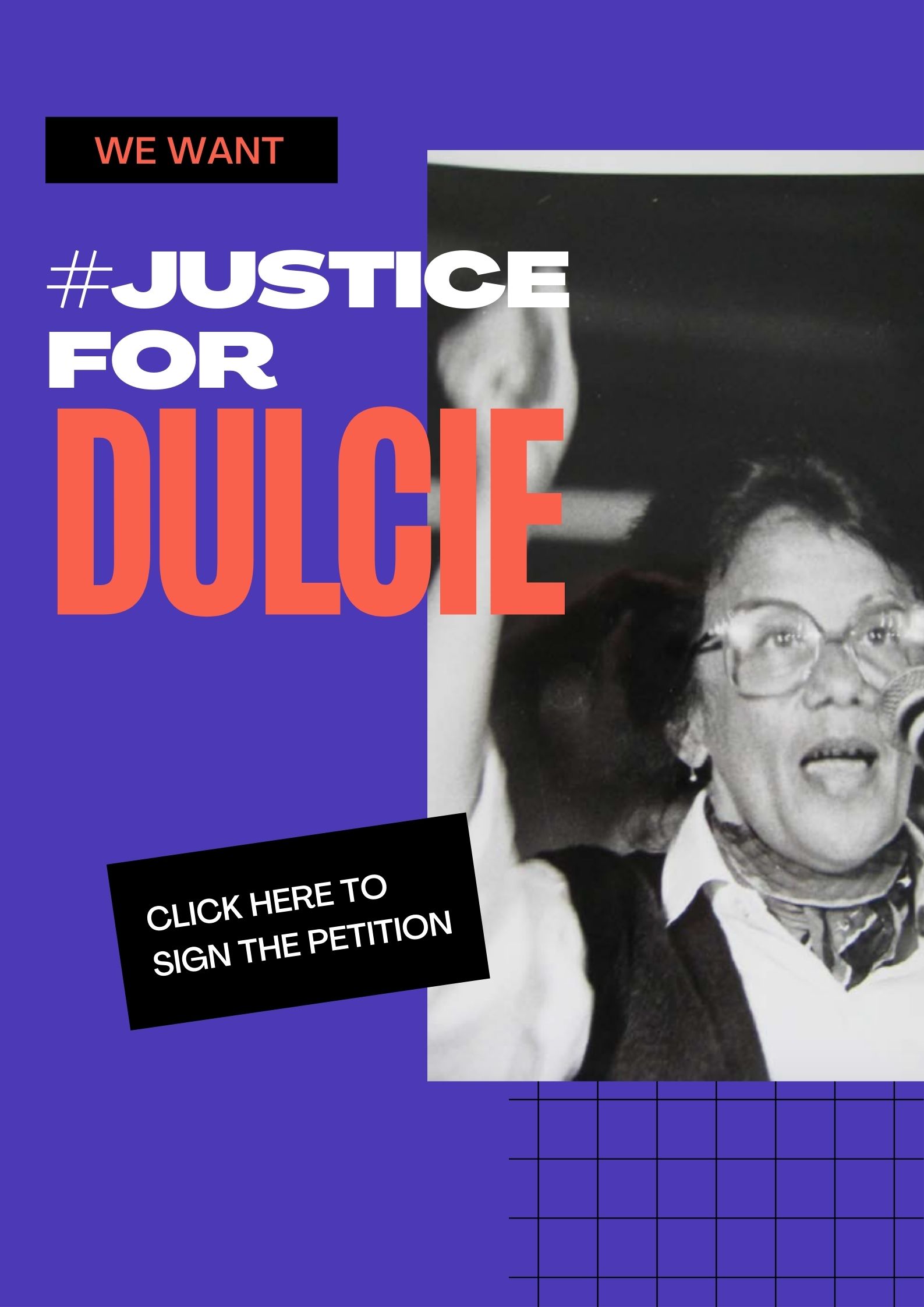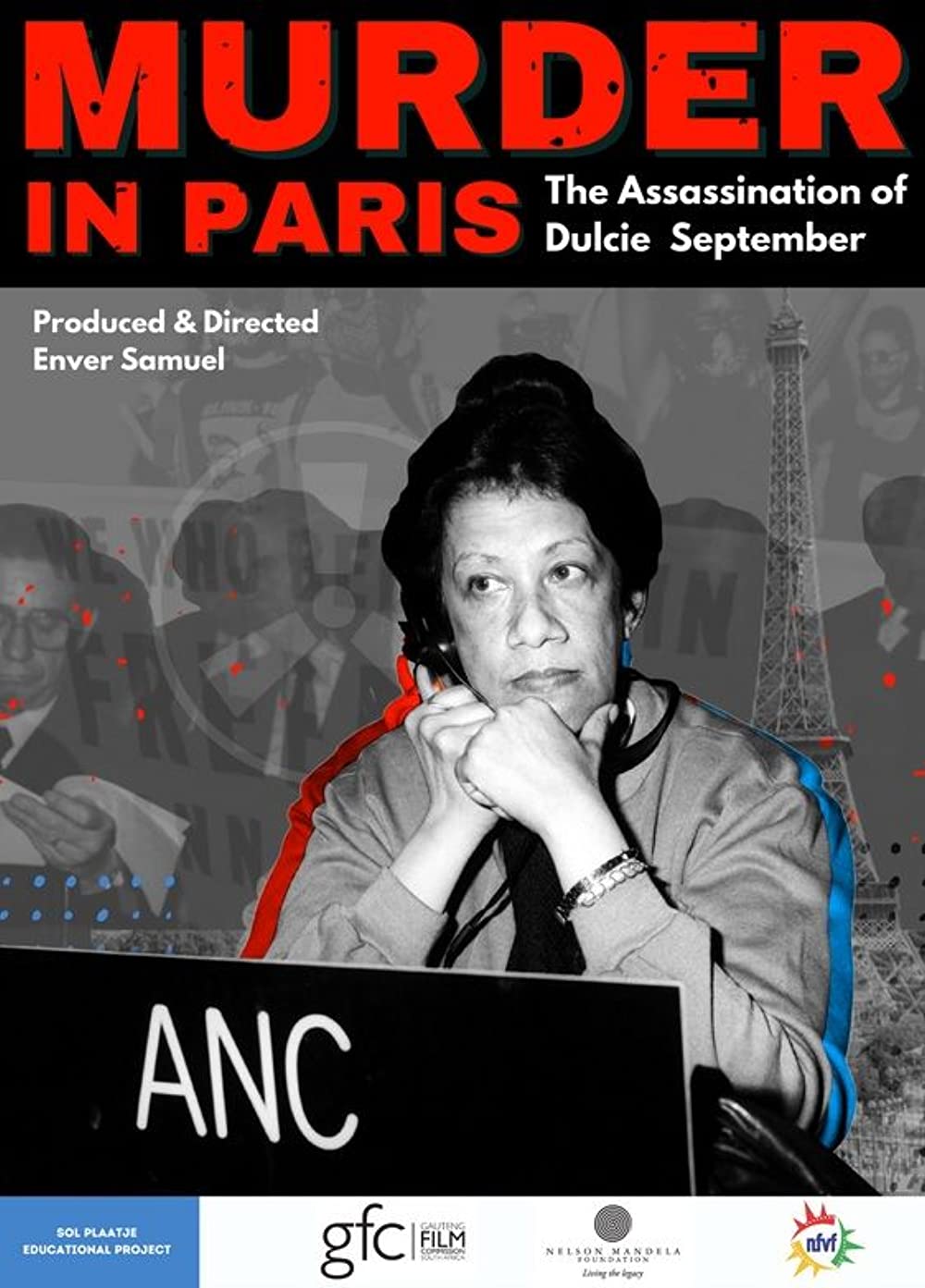On March 29th, 1988, a South African anti-apartheid activist and ANC representative in France, Dulcie September, was assassinated outside the ANC's Paris office.
She was 53 at the time of her assassination. Thirty-three years after the execution, French lawyer Yves Laurin, acting on behalf of Dulcie September's family, took action to petition the re-opening of the cold case. The first hearings will happen this month, in May. Excerpts of the documentary, Murder in Paris, produced and directed by South African filmmaker Enver Samuel will be submitted as evidence in support of the case. At the same time, the French archives around September's work and assassination have remained sealed until today. Along with the circulation of the film, a digital advocacy campaign and a petition are also underway, using the hashtag #JusticeForDulcie and fostering transnational networks of solidarity.
Produced and Coordinated by Leonard Cortana with the students of BLST 175
In consultation with the UCSB Library and Archive Specialist Angela Chikowero
Cover artwork by Chevon Booysen Curated by the Department of Black Studies
As the visual poster of the podcast suggests, Dulcie Lives On acts as a puzzle in the making.
Every piece intersects with each other and opens another imaginary of the many facets of September's life. As the podcast rightly concludes, this piece calls for the creation of new ones. The multiple methodologies displayed in the five episodes reveal the gain of developing a collective dialogue to speak truth to power and embrace a powerful poetics BLACK for collective liberation.
In an interview for Revolutionary Feminisms: Conversations on Collective Action and Radical Thought (Brenna Bhandar, Rafeef Ziadah, 2020), scholar and activist Angela Davis points out “a consistent theme in my life has been the convergence of academic knowledge and knowledge generated in the course of actively struggling for radical change.” This convergence she refers to has guided me in teaching the class Black Diaspora Cinema and encouraged my students to create their media to celebrate Black resistance and fight against historical erasures.
Episode 1: Dulcie's Activism : A Transformation
This opening episode to the series Dulcie Lives On looks at biographical aspects of Dulcie September. We explore her early life in South Africa and how she went from educator to activist to political prisoner and how her life in the prison transformed her as a political activist. We look at how Dulcie grew from not being incredibly interested in anti-apartheid activism to completely dedicating her life to it and having it ultimately be the reason she was murdered. We then briefly cover her move out of South Africa and the steps that began her activism career in Europe.
This Episode was created by Erica Dennis, Yerin Hong, Lydia Rice, Matthew Sevilla, Josephine Trilling
Episode 2: Dulcie and the Cold War Arms Trade
In this episode we hope to fan the flame of Dulcie’s legacy through our episodic contribution, unveiling her connection and protests against the arms trade. Seeing as Dulcie’s time in jail was formative not only for the woman herself, but for those who followed in her activism, and her fascination and frustration with the arms trade, a much larger political issue globally, began in this period, it was impossible for us not to investigate further, feeling as though listeners may have the same vested interest. To adequately represent such a grand international scheme as it relates fo our protagonist, Dulcie September, we insisted it was necessary to hear from many of our contemporaries and experts in the field.
This Episode was created by: Jacob Martin, John Paul Ruiz, Dylan Schroeder, Carlos Serrano, Jameson Walsh and Delaney Willet With Special Guest: Angela Chikowero
Episode 3: Women Seeking Change
This episode discusses the treatment of women within the ANC and how Dulcie impacted it as a whole. Each of us focused on a certain aspect of the podcast narrative. Phoebe discusses Dulcie’s experience as an academic/teacher and her activism in ANC, presenting a primary source as evidence of women's poor treatment in the organization. Gwenaelle delves further into this topic as she explains how the lack of women in positions of power created an imbalance between gender dynamics. From that, Daphne continues to examine how men are regarded in comparison to women in ANC, and how Dulcie’s leadership offered a voice for other women. Finally, Anthony discusses Dulcie’s lasting impact on the anti-apartheid movement despite her erasure and silencing, paying tribute to her contributions
This episode was created by: Daphne Policarpio, Gwenaelle Fotso, Phoebe Drummond, Anthony Alvarez With Special Guest: Angela Chikowero
Episode 4 : Media Invisibility
In this episode we discuss the role of news outlets in the ongoing erasure of ANC activist Dulcie September. Ms. September was assassinated in her French home. office on March 29th, 1988 and her murder has remained an unsolved mystery ever since. Although happening in France, our episode wanted fo investigate how US- news sources were reporting on her death and the level of significance or lack thereof of Dulcie’s life and death to the American consumer. Utilizing our combined disciplines of global studies, english, art history, and gender and feminist studies, we created a panel-like discussion in which we formally analyzed narrative choices, visual components, and relevant contextualization within the American reports of Dulcie’s death and comment on how these elements contribute to the invisibility of Dulcie in the media, especially ones outside of France
This Episode was created by Annabelle Bellamy, Fabiola Pascual, Maria Castillejo Huanosta and Ceci Saldivar
Episode 5: Un-Erasing Dulcie September
In the final episode of Dulcie Lives On, we discuss the concept of unerasure and how this process has unfolded for Dulcie in the digital age. You will hear an interview with Enver Samuel - the director and producer of the film Murder in Paris, a documentary exploring the life and death of Dulcie September and the commentary of our team. It was the film Murder in Paris and the digital activism of the accompanying digital campaign, #justicefordulcie, that began our journey on this collaborative project. As a conclusion to this series, we end on the positive note of what is being done fo further the reach of Dulcie’s story in support of her family and friends while justice can still be served. Furthermore, we seek to empower our listeners fo not only share the story of Dulcie, but to use the resources they have available to uplift voices and stories that need to be heard.

